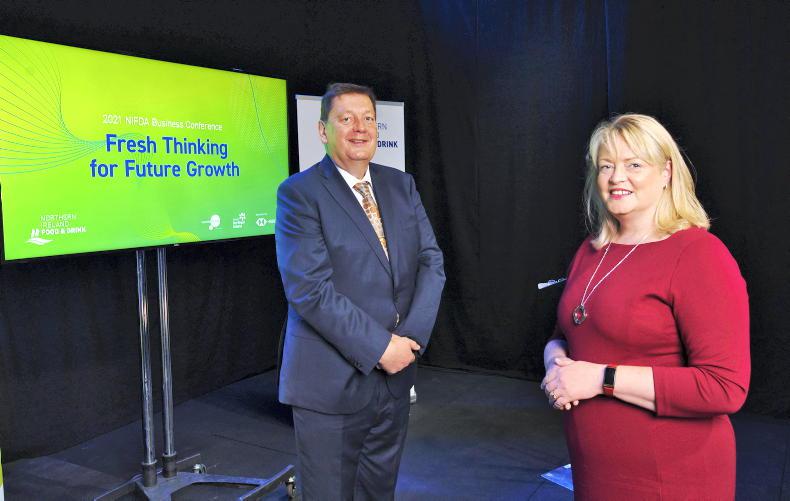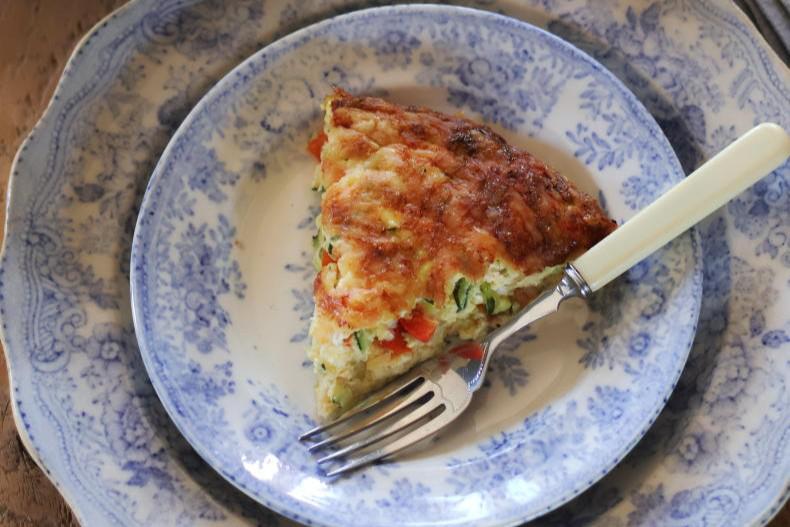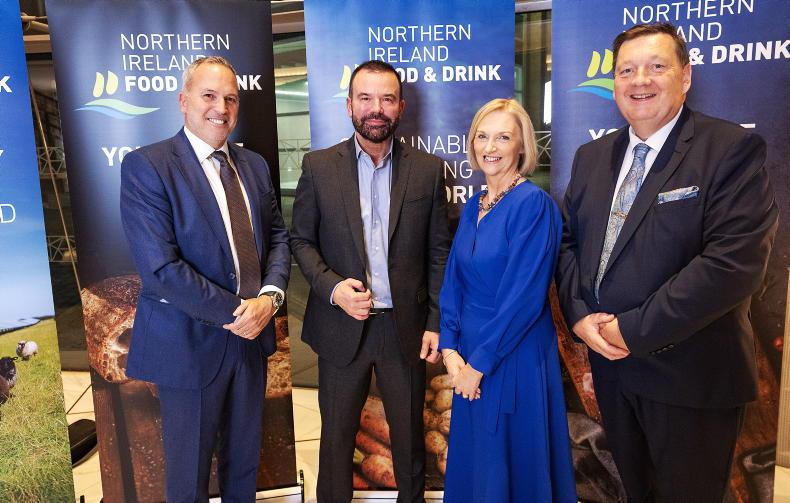A key figure within the UK food industry has warned that consumers face “huge increases in prices” over the next few months.
Speaking at a business conference organised by the NI Food and Drink Association (NIFDA) last Friday, Ian Wright, the chief executive of the UK Food and Drink Federation, said that the era of food price stability and deflation is over.
He pointed to higher input prices driven by rising energy costs, and disruption to the labour market as a result of Brexit and COVID-19.
Wright gave the example of shipping goods from Asia to Britain, which now costs six times more than it did this time last year.
“There is a war for talent that will drive up prices. One in eight workers are absent [in the food industry] and this a massive, massive challenge,” he added.
His prediction is that food prices could rise by as a much as 9% by the end of the year.
Lid on prices
However, other contributors at the NIFDA event believe that major supermarket chains, and the German discounters (Lidl and Aldi) in particular, will try to keep a lid on price rises, and a 4% lift by the end of 2021 is a more realistic outcome.
That is still a significant price rise, and with no sign of any short-term easing in inflationary pressure, food prices may continue on an upward trajectory, acknowledged Dr Clive Black from Shore Capital Markets.
But he warned that consumers may respond to higher prices by trading down in an attempt to source cheaper alternatives.
“No-one wants to embrace that, whatever the sector,” he said. He also pointed out that when the UK furlough scheme ends on 30 September 2021, it will ease some of the pressures in the labour market, and that commodity prices can still change on the back of future events, such as a bumper global grain harvest in 2022.
Bank base rates to rise in 2022
Economists with HSBC expect the Bank of England to raise base rates in both the spring and autumn of 2022, Gillian Morris, the head of corporate banking for HSBC in NI told the NIFDA conference last Friday.
“We are not anticipating this will be a massive hike – they will incrementally start to raise rates over a period of time,” she said.
Over the next six to eight weeks, the UK Department for International Trade (DIT) will be setting up a dedicated team in NI to help businesses grow export sales.
It is all part of a post-Brexit drive to position the UK as a global leader in free trade.
NIFDA executive director Michael Bell put it to Oriel Petry from DIT that it is contradictory for the UK to be pushing farmers and food producers to meet exacting net zero targets, while doing trade deals with countries where emissions per unit of output are higher.
“That is the sort of challenge we are grappling with on a day-to-day basis,” acknowledged Petry, in a fairly unconvincing response.
However, the reality for many in the food industry is that they remain to be convinced on just how seriously the government takes the issue, having been largely left to their own devices for many decades.
Not mincing his words, Dr Clive Black from Shore Capital Markets described the export approach to-date as “a total joke” and said that some past UK trade events had been led by people you “would not put in front of a kindergarten.”
Private equity firms eying up takeover of UK retail
In October 2020, UK-based billionaires Mohsin and Zuber Issa, backed by private equity firm TDR Capital, completed a deal to buy British supermarket chain Asda.
Following that, last month, Morrisons confirmed that it has accepted a £7bn bid from US private equity company Clayton, Dubilier & Rice (CD&R).
There are rumours in the industry that Sainsbury’s could also be attracting interest from private equity firms.
According to Ian Wright from the Food and Drink Federation, these deals will have implications for food producers and suppliers.
“New owners will be stripping out cost and driving efficiency to pay back debt. Producers can’t be protected, but they can be prepared.
“You must have an absolutely transparent, rigorous and vigorous relationship with your retail customers,” he told NIFDA members.
Also commenting, Dr Clive Black from Shore Capital Markets suggested that even Tesco is not immune from being taken out by “mega private equity.”
He added that the low cost of interest rates is a key driver, but more fundamentally, it is because the prospects for retailers have greatly improved, with more people working from home, less commuting, and less international travel all meaning sales are up, especially online.
“Online is now profitable. It took 23 years to go from 0 – 7% share, and 23 weeks to go from 7% – 13.5%,” said Black.
Read more
Analysis: the implications of BSE cases in Brazil
23% of consumers willing to pay a premium for grass-fed beef
A key figure within the UK food industry has warned that consumers face “huge increases in prices” over the next few months.
Speaking at a business conference organised by the NI Food and Drink Association (NIFDA) last Friday, Ian Wright, the chief executive of the UK Food and Drink Federation, said that the era of food price stability and deflation is over.
He pointed to higher input prices driven by rising energy costs, and disruption to the labour market as a result of Brexit and COVID-19.
Wright gave the example of shipping goods from Asia to Britain, which now costs six times more than it did this time last year.
“There is a war for talent that will drive up prices. One in eight workers are absent [in the food industry] and this a massive, massive challenge,” he added.
His prediction is that food prices could rise by as a much as 9% by the end of the year.
Lid on prices
However, other contributors at the NIFDA event believe that major supermarket chains, and the German discounters (Lidl and Aldi) in particular, will try to keep a lid on price rises, and a 4% lift by the end of 2021 is a more realistic outcome.
That is still a significant price rise, and with no sign of any short-term easing in inflationary pressure, food prices may continue on an upward trajectory, acknowledged Dr Clive Black from Shore Capital Markets.
But he warned that consumers may respond to higher prices by trading down in an attempt to source cheaper alternatives.
“No-one wants to embrace that, whatever the sector,” he said. He also pointed out that when the UK furlough scheme ends on 30 September 2021, it will ease some of the pressures in the labour market, and that commodity prices can still change on the back of future events, such as a bumper global grain harvest in 2022.
Bank base rates to rise in 2022
Economists with HSBC expect the Bank of England to raise base rates in both the spring and autumn of 2022, Gillian Morris, the head of corporate banking for HSBC in NI told the NIFDA conference last Friday.
“We are not anticipating this will be a massive hike – they will incrementally start to raise rates over a period of time,” she said.
Over the next six to eight weeks, the UK Department for International Trade (DIT) will be setting up a dedicated team in NI to help businesses grow export sales.
It is all part of a post-Brexit drive to position the UK as a global leader in free trade.
NIFDA executive director Michael Bell put it to Oriel Petry from DIT that it is contradictory for the UK to be pushing farmers and food producers to meet exacting net zero targets, while doing trade deals with countries where emissions per unit of output are higher.
“That is the sort of challenge we are grappling with on a day-to-day basis,” acknowledged Petry, in a fairly unconvincing response.
However, the reality for many in the food industry is that they remain to be convinced on just how seriously the government takes the issue, having been largely left to their own devices for many decades.
Not mincing his words, Dr Clive Black from Shore Capital Markets described the export approach to-date as “a total joke” and said that some past UK trade events had been led by people you “would not put in front of a kindergarten.”
Private equity firms eying up takeover of UK retail
In October 2020, UK-based billionaires Mohsin and Zuber Issa, backed by private equity firm TDR Capital, completed a deal to buy British supermarket chain Asda.
Following that, last month, Morrisons confirmed that it has accepted a £7bn bid from US private equity company Clayton, Dubilier & Rice (CD&R).
There are rumours in the industry that Sainsbury’s could also be attracting interest from private equity firms.
According to Ian Wright from the Food and Drink Federation, these deals will have implications for food producers and suppliers.
“New owners will be stripping out cost and driving efficiency to pay back debt. Producers can’t be protected, but they can be prepared.
“You must have an absolutely transparent, rigorous and vigorous relationship with your retail customers,” he told NIFDA members.
Also commenting, Dr Clive Black from Shore Capital Markets suggested that even Tesco is not immune from being taken out by “mega private equity.”
He added that the low cost of interest rates is a key driver, but more fundamentally, it is because the prospects for retailers have greatly improved, with more people working from home, less commuting, and less international travel all meaning sales are up, especially online.
“Online is now profitable. It took 23 years to go from 0 – 7% share, and 23 weeks to go from 7% – 13.5%,” said Black.
Read more
Analysis: the implications of BSE cases in Brazil
23% of consumers willing to pay a premium for grass-fed beef








SHARING OPTIONS